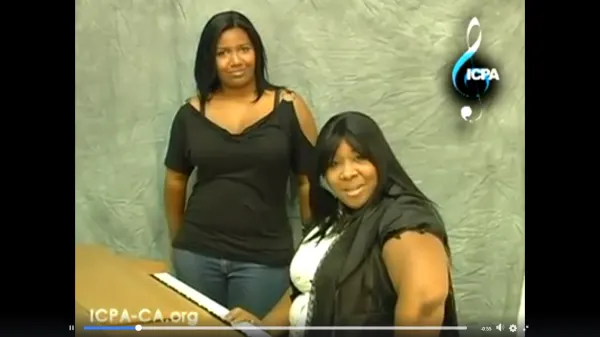Resonate Vocal Wellness Sancturary
About
Hello,
Thank you for visiting my site!!
🎶🎹 Hello, I currently have a few openings in my Virtual and In Person.
Would you like to schedule a meeting?
What are your initial goals for your voice?
My rates:
-30 minute First Session- $35 (Pro Evaluation )
- 30 minute lesson - $50
- 60 minute lesson - $60
I specialize in all musical genres.
When are you available for your first lesson?
As a working artist in the industry, I bring real-world insights and practical knowledge to help you excel in your musical journey. Learn from someone who has not only been in the industry but continues to thrive in it today!!
I look forward to hearing from you soon🎵
I look forward to hearing from you soon!🎵
Let's elevate your voice and piano skills together!
🎶🎹✨ #MusicLessons #VoicePiano #IndustryExperience
Specialties
Years experience
Able to read music
Lesson length
Student's age
Student has instrument
Interested musical styles
Photos and videos






Reviews
Wayne
Jane A.
Iris C.
Jeremy T.
Lee T.
Annalisa T.
Frequently asked questions
What is your typical process for working with a new student?
What education and/or training do you have that relates to your work?
TRAINING AND EDUCATION
TOP TYROLEAN OPERA PROGRAM, ELIZABETH BACHMAN, OPERA PERFORMANCE
CALIFORNIA STATE POLYTECHNIC UNIVERSITY, BM-Vocal Performance Major
DIRECTORS
ELIZABETH BACHMAN
HENRI VENANZI
CONDUCTORS
ANDRE PREVIN
JOHN DEMAIN
DR. ALBERT MCNEIL
VOCAL INSTRUCTION
KORBY MYRICK
SARAH MCFERRIN
MARIA MARTINO
COACHES
HENRI VENANZI
KATHRYN WRIGHT
BRENT MCMUNN
MASTERCLASSES
ORESTA CYBRIWSKY
ELIZABETH BACHMAN
VOCAL COMPETITION AND HONORS
Metropolitan Opera Regional Winner
Who’s Who in American Music 2006/2009
<br><a href="https://lessons.com/az/phoenix/piano-lessons/" target="_blank"><img src="//cdn.lessons.com/assets/images/tmp/lessons-2021.png" width="150"></a><br>
Do you have a standard pricing system for your lessons? If so, please share the details here.
SINGLE LESSONS
- 30 minute lesson - $35
- 60 minute lesson - $60
UNSURE? Try an introductory package: 6 weeks of lessons for $210 (30-minute length)
Lessons are discounted for those who join Diamond in the Rough Voice Studio on an ongoing weekly basis.
SHORT TERM COACHING:
Do you need help prepping for a single big event (audition, talent show) in a more intensive way?
I can help you prepare on a short term basis, too. The more notice you give, the more likely I can schedule something to help you.
How did you get started teaching?
Singing and teaching have gone hand-in-hand for me for years. It has been like fire shut up in my bones so I tried to do one without the other the other would be golden and they're gone hand-in-hand in my life all these years.
What types of students have you worked with?
My students have been very diverse some advanced, some just beginning some no experience at all having entered my studio as unconfident tone challenged caterpillars and in the end soared in the industry as professional vocal butterflies.
Describe a recent event you are fond of.
I have just begun a series of nomadic Dine With the Diva pop-up Dinner Theater starring students from my studio, special guests and yours truly.
My husband is a le Cordon Bleu trained chef and has designed some amazing menus for our events; such a tasty combination I say.
What advice would you give a student looking to hire a teacher in your area of expertise?
My advice to students seeking to find the right fit student to teacher is to ask those questioned in the pit of your stomach, look them in the eye and make sure that there is a proper connection.
What questions should students think through before talking to teachers about their needs?
Top 10 Voice Teacher Interview Questions:
1. The Basics
What is their Availability?
What are their current Rates?
2. Formal Qualifications
Where did they study?
What type of singing and performing have they done?
Is voice their primary instrument? Secondary?
Don’t hesitate to request a Bio, Resume, References and Recordings of the teacher’s singing!
3. How long have they been teaching?
It’s a good idea to ask how long the teacher has owned their own studio or taught for this particular studio. I’d also ask how long they have taught in the area, where else they’ve taught, and under what circumstances.
As I teacher I love this questions. It feels like bragging without bragging. (I would answer that I just moved to the area and opened my own studio this past year. Then I would elaborate on my past teaching experience with a number of private studios in southern California, as a vocal teaching assistant at university through my masters, and as an elementary and middle school music and performing arts teacher.)
4. What repertoire do they teach?
Do they teach a specific style of singing?
This is very important. Teachers should be familiar with the style of singing the student is looking to study. Enrichment and music appreciation can be found with any teacher. However, certain styles of singing require a specific teaching expertise. For instance, if a student is looking to sing opera it is really important to seek a teacher with operatic experience that can teach both technique and proper classical style. Similarly, if a teacher is only comfortable teaching in the classical style and the student wants to sing pop music then the opera teacher isn’t the right fit. Go into the interview knowing what the student wants from a teacher; it will help a lot!
5. What performance opportunities are available to students?
Performance opportunities are vital for good vocal education. Teachers should be offering opportunities to perform. Some teachers offer recitals, master classes, competitions, and even festival opportunities. Ask the teacher if they are members of any professional organizations, like NATS or MTNA, that’s members students can participate in competitions and other singing opportunities.
Not all teachers are connected like this and they don’t have to be to be a good teacher. Maybe the teacher is just starting their studio (like me, wink!)! Ask if the teachers intend to establish these kinds of opportunities in the future and in what time frame. However if these kinds of activities are important to the student then it’s important to find a teacher that offers these connections.
6. How often do they expect students to practice?
This is a good way to make sure the student’s dedication level (and schedule) matches the teacher’s expectations. In my studio, I say “the more you put in the more you get out” and let students organize their own practice time. I encourage beginning students to practice 20-30 minutes a day. I provide tools and resources to help them establish a practice routine. More advanced students will practice more while less motivated students will practice less.
7. Do they offer a free first trial lesson or require an audition for the studio?
In my studio I offer a free first trial lesson to get to know the student before officially starting. Other studios have a waiting list and require an audition before putting the student on the calendar. Audition level studios can be more competitive. They can also be a sign of a well- established teacher who may have lots of resources and lots of loyal students. If the student likes the teacher there is no harm in auditioning, even for beginners! Just know there is nothing wrong with a lesser known teacher if they are qualified and a good fit… they are just lesser-known!
8. What do students need to bring to lessons?
A good teacher will ask for students to bring writing utensil, binder, sheet music they have worked on or want to work on, list of goals for lessons, and a recording device to record lessons.
9. Where do lessons take place?
Ask the teacher to describe the teaching environment. Consider how easily distracted the student is and if the environment is a good fit. For me I have two toddlers at home while I teach. Yes I do have a babysitter but they (and their noises/distraction/occasional toys) could potentially interrupt. I know this and make sure my rates reflect it. Most importantly, I make sure that parents are informed before students take a first lesson!
10. What is their teaching philosophy?
Are they strict or loose, traditional or contemporary, etc?
Can they tailor lessons to each student’s needs?
Do they follow a particular curriculum?
Do they adhere to a specific teaching method?
Before you Call
Consider the first phone call with the teacher a first indication of how lessons will go. Personality and first impression go a long way in choosing a teacher. In this initial call parents should gather information about the teacher, their experience, teaching philosophy and curriculum as well as studio logistics. Beforehand, be sure to look at the teacher’s website to see (hopefully) their bio, rates and teaching philosophy. If a website is not available, this information will need to be gathered during the call. Likewise, a website is a good indicator of whether the teacher offers conveniences you value like online payment or scheduling options.
Things to look out for!
Specifically with voice teachers there are some things to look out for. I believe it is wise to make sure the voice teacher has had some form of training themselves, and at the very least a long performance based bio. Try to look for a good combination of teaching and performance experience as well as a personality that compliments the student’s own. Lessons should be focus on technique not just learning songs. For this reason be sure the teacher is a singer!
Lastly, there are some things you can assume with all lessons. You should expect that students will be required to purchase their own sheet music and that this will be an additional cost to the price of lessons. Parents can always ask how much music the teacher recommends purchasing but should plan to buy some music.
Don’t be afraid to shop around!
As I said before, as parents we want the best for our students! We wouldn’t interview just one babysitter or just one tutor, why a music teacher. And don’t worry, teachers understand and respect this. While a good teacher wants to win your business, they also know that they can’t be the perfect fit for every student.